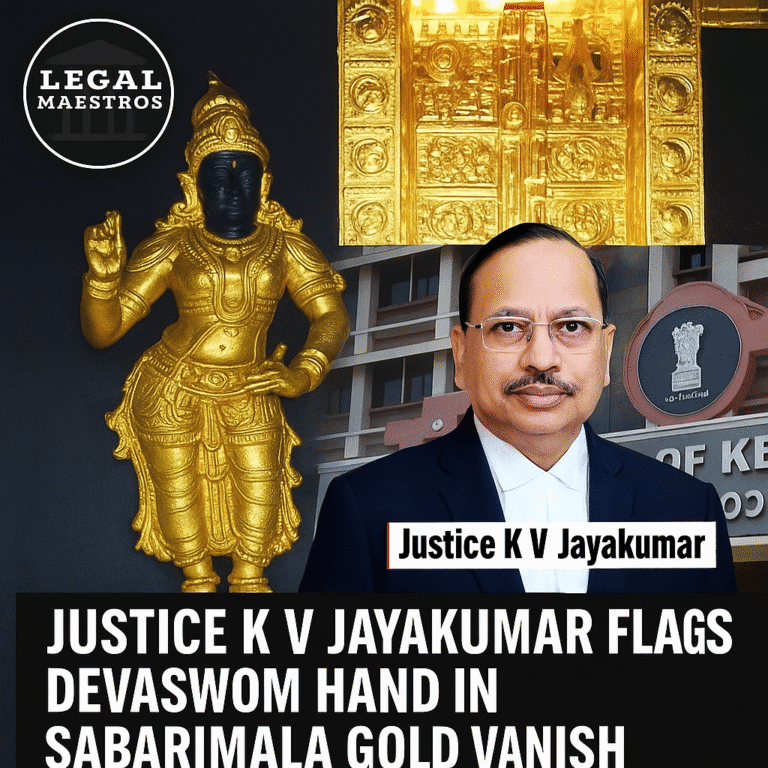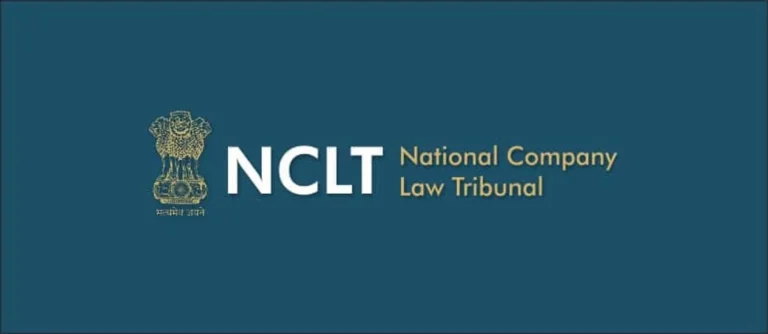
Court of Allahabad Upholds Prima Facie Defamation Summons in Rahul Gandhi Case, Justice Subhash Vidyarthi Stresses Need for ‘Aggrieved Person’ Test
Introduction
The Allahabad High Court’s verdict in the case of Rahul Gandhi v. State of Uttar Pradesh on May 29, 2025, highlights how serious it is when a famous person is accused of criminal defamation.
The Court looked at how the trial magistrate utilized his or her judgment to summon the petitioner under Section 500 of the Indian Penal Code. The Court can do this since it has some power under Section 482 of the CPC.
The decision makes it apparent what crucial procedural protections are in place, what “aggrieved person” means in defamation cases, and how much higher courts can become involved before a trial.
For any queries or to publish an article or post or advertisement on our platform, do call at +91 6377460764 or email us at contact@legalmaestros.com.
Facts of the Case
During his “Bharat Jodo Yatra” on December 16, 2022, Rahul Gandhi, who was then a member of parliament, said that Chinese forces were “thrashing” Indian soldiers near the Arunachal Pradesh border.
A former officer of the Border Roads Organization filed a complaint under Section 500 of the Indian Penal Code, saying that his sentiments of patriotism and the honor of the Indian Army had been harmed.
At first, the magistrate assumed there was defamation and issued out a summons. Gandhi went to the High Court to fight the order, saying it had no place and that it was made via mechanical means.
For any queries or to publish an article or post or advertisement on our platform, do call at +91 6377460764 or email us at contact@legalmaestros.com.
For More Updates & Regular notes, Join Our WhatsApp group (https://chat.whatsapp.com/DkucckgAEJbCtXwXr2yIt0) and Telegram Group ( https://t.me/legalmaestroeducators )
Definitions and Key Provisions
Section 500 of the Indian Penal Code says that defamation can get you a fine or up to two years in jail. According to Section 199 of the Criminal Procedure Code, cognizance can only be taken “upon a complaint made by some person aggrieved.”
Section 482 of the Criminal Procedure Code lets the High Courts toss out cases that are unjust to justice or exploit the court’s rules in a bad way.
For any queries or to publish an article or post or advertisement on our platform, do call at +91 6377460764 or email us at contact@legalmaestros.com.
The ruling makes it apparent that an actual affected party and a judge’s mind are needed before a defamation claim may be filed. This is to make it clear that talking about politics is not the same as hurting someone with lies. Someone must be injured for real.
Locus Standi and “Aggrieved Person”
One of the most important questions that needed to be answered was whether or not the complainant was an aggrieved person when the claimed defamation was aimed at an institution instead than the complainant’s personal character.
The individual who complained used to be an officer and had respect for the Army. The Court said that if someone says anything bad about an organization they care about in public, their sentiments may be enough to make them feel harmed.
For any queries or to publish an article or post or advertisement on our platform, do call at +91 6377460764 or email us at contact@legalmaestros.com.
This reading doesn’t change the requirement that persons have to prove true personal pain, but it does add more people to the list of possible complainants.
Exercise of Magistrate’s Discretion
A magistrate does not have to judge if a conviction is likely to happen during the summons stage. They just have to assess if there are “sufficient grounds for proceeding.” Once more, the Supreme Court concurred with this.
The investigation uses the complaint’s claims, the complainant’s testimony under Section 200 of the Criminal Procedure Code, and any preliminary witness statements under Section 202 of the Criminal Procedure Code.
For any queries or to publish an article or post or advertisement on our platform, do call at +91 6377460764 or email us at contact@legalmaestros.com.
The High Court decided not to change its own verdict on the merits of the defamation complaint because there was no proof that the magistrate did not apply his or her own judgment or relied on facts that were not relevant.
Limits of Inherent Jurisdiction
The High Court observed again that the powers to quash conferred by Section 482 of the Criminal Procedure Code are not widespread and are only applicable in limited cases. Superior courts shouldn’t get involved just because they might see the facts in a different manner.
The inherent remedy will only operate in a few cases, including where there is a clear legal problem, a lack of jurisdiction, or a patent absurdity. The trial court had complete control over the case since the magistrate’s decision revealed that there was a solid basis to think that there was prima facie defamation.
For any queries or to publish an article or post or advertisement on our platform, do call at +91 6377460764 or email us at contact@legalmaestros.com.
Conclusion
The Allahabad High Court’s ruling presents a complete description of how defamation law works. It keeps the criminal justice system strong while protecting the right to free expression.
The ruling makes sure that defamation laws don’t hinder individuals from saying what they think about politics or become a way for people to harass others by going over the multiple definitions of the term “aggrieved person” and underlining the need for prudence.
The ruling is a wonderful model for other courts to follow when it comes to finding a balance between protecting people’s rights, upholding the respect of institutions, and making sure the legal process is fair.
For any queries or to publish an article or post or advertisement on our platform, do call at +91 6377460764 or email us at contact@legalmaestros.com.




![Research Assistantship @ Sahibnoor Singh Sindhu, [Remote; Stipend of Rs. 7.5k; Dec 2025 & Jan 2026]: Apply by Nov 14, 2025!](https://legalmaestros.com/wp-content/uploads/2025/11/Gemini_Generated_Image_s0k4u6s0k4u6s0k4-768x707.png)
![Karanjawala & Co Hiring Freshers for Legal Counsel [Immediate Joining; Full Time Position in Delhi]: Apply Now!](https://legalmaestros.com/wp-content/uploads/2025/11/Gemini_Generated_Image_52f8mg52f8mg52f8-768x711.png)
![Part-Time Legal Associate / Legal Intern @ Juris at Work [Remote]: Apply Now!](https://legalmaestros.com/wp-content/uploads/2025/11/ChatGPT-Image-Nov-12-2025-08_08_41-PM-768x768.png)
![JOB POST: Legal Content Manager at Lawctopus [3-7 Years PQE; Salary Upto Rs. 70k; Remote]: Rolling Applications!](https://legalmaestros.com/wp-content/uploads/2025/11/ChatGPT-Image-Nov-12-2025-08_01_56-PM-768x768.png)